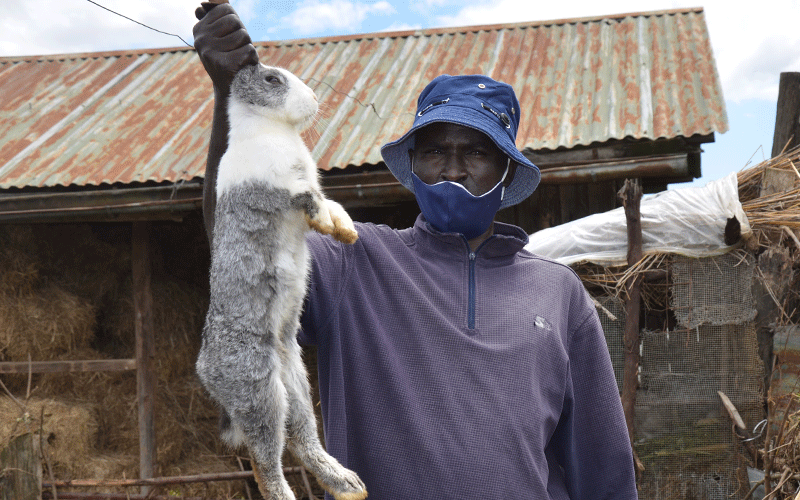Nyandarua’s riddle of high malnutrition in land of plenty

Nyandarua county is a major producer of cabbage, carrots and potatoes. It sells its surplus to both Nairobi and parts of Nakuru counties.
Local farmers often make a kill during burial, wedding or dowry ceremonies when Nairobi residents flock the region to buy the produce in bulk.
The compulsive buying of the foodstuff by Nairobi residents is attributed to the fact that they find it pocket-friendly compared to prices of the same in the city.
Despite being referred to as a food basket, the county has registered the highest level of children under five with stunted growth in the country.
Executive for Health Services Dr John Mungai, has sounded the alarm that the county’s stunted growth rate is higher than the national average.
“We have enough food but our children are not growing to the right height, because the food is not of the right quality.
Our county is the largest producer of potatoes and second in milk production as well as vegetables, yet our children are not getting quality food,” said Mungai.
According to Mungai, the national prevalence of under-five stunting rate nationally is at 26 per cent against Nyandarua’s 30 per cent.
His Agriculture counterpart, Dr James Karitu, adds that the county has stunted growth amongst its population as a result of protein deficiency and over reliance on carbohydrates.
Karitu notes that rabbit meat, coupled with pork was a solution to provide children and the general population the much needed balanced diet.
Stunted growth is an issue Governor Francis Kimemiam (pictured) who chairs the Agriculture Committee in the Council of Governors (CoG) set-up, promised to address in his 2017 campaign.
On assuming office, Kimemia entered into an agreement with New KCC to provide free milk to nursery school children.
“We are still providing milk to our nursery school children to cushion them from under development. Malnutrition may end up affecting their academic performance,” says Mungai.
Executive has since appealed to parents not to sell all their milk, but “to first give your child a glass before selling.”
Through the Agriculture department, the county has kicked odd campaign to motivate farmers to venture into poultry farming to boost family nutrition.
Kimemia’s predecessor, Daniel Waithaka, was offering free fruit seedlings in a bid to improve nutrition intake among the people and stem the problem of stunted growth.
Sustained campaign
Fish eating had picked up very well between 2013 and 2017 as the county government promoted fish farming and consumption through a sustained campaign.
This has slackened, as the current administration seems not keen on that venture.
Families with educated people are not sitting pretty; they are seeking alternative sources of protein in their meals and rabbit rearing for meat seems to be favored by many.
Chuka University Final Year catering student, Stephen Ngunju, is already promoting rabbit eating in his family in Leshau village, Ndaragwa sub-county.
“The rabbit’s white meat is rich in proteins and can be a solution for families that have a problem of stunted growth,” Ngunju says adding that some of the nutritional problems could be traced to overreliance on Irish potatoes and cabbages.
A majority of youth have now engage in rabbit rearing. Kareithi Mungania, another residents says he had engaged in poultry, livestock farming earlier but has since opted for rabbit farming saying it was less demanding and diseases were nothing to worry about.
Another resident, Joseph Mwangi,17, took advantage of the long school closure period due to Covid-19 to start rabbit rearing.
He now has more than 20 rabbits from the two he bought in March. He sells them at between Sh300 and Sh700 depending on the size and breed.
To give rabbit rearing a boost, Karitu says the county government is planning to start breeding stocks at its OlJororok Agricultural Training College.
Currently, Nyandarua is the leader in potato production in the country, commanding 33 per cent of the commodity produced nationally per year.
Karitu says the county produces 550,000 metric tonnes of potatoes worth about Sh10 billion.
Milk, on the hand, contributes a whooping Sh12 billion into the county’s Gross domestic product. Such appetizing figures show why Nyandarua people do farming with money in mind and not nutritional value of foods for their families.











